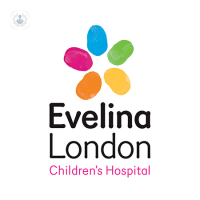What is faltering growth?
“Faltering growth” is a term used for when infants and young children do not gain weight as quickly as expected for their age and sex. Growth may be slow or, in some cases, the child may actually lose weight. As such, faltering growth is a common cause for concern for parents.

Symptoms of faltering growth
The key symptom is slow weight gain, no weight gain, or even weight loss. Infants have their weight monitored in regular check-ups with doctors, so faltering growth is usually spotted quickly.
In the first few days of life, it is normal for a baby to lose some weight. This is usually related to body fluid adjustments. As feeding patterns are established, they will then slowly gain weight, with most infants regaining their birth weight by three weeks of age.
However, if the infant loses 10% of their birth weight, this requires investigation, including a clinical assessment and observation of feeding.
What are the causes of faltering growth?
Faltering growth is most commonly caused by inadequate nutrition. A range of factors can be responsible, including:
- Ineffective suckling or bottle feeding.
- Feeding aversion.
- Physical disorders that affect feeding.
- Inadequate feeding patterns/routines.
- Interaction between parents and child, including behaviour caused by post-natal depression or anxiety in the mother.
Treatments for faltering growth
Firstly, the situation must be assessed by a doctor, by observing how the child is fed and with a clinical assessment.
The doctor may offer feeding support measures, such as supplementary feeding with infant formula, or complementary solid food for older infants. For younger infants, the doctor may be able to offer advice to mothers on breastfeeding and how to promote their milk supply.
In severe cases where the child’s growth continues to falter and other measures are ineffective, perhaps due to a physical problem, a feeding tube may be required.
Which type of specialist treats faltering growth?
Paediatricians and paediatric gastroenterologists specialise in diagnosing and treating the causes of faltering growth.
07-22-2019 12-21-2023Faltering growth
Dr Silvia Pierini - Paediatrics
Created on: 07-22-2019
Updated on: 12-21-2023
Edited by: Jay Staniland
What is faltering growth?
“Faltering growth” is a term used for when infants and young children do not gain weight as quickly as expected for their age and sex. Growth may be slow or, in some cases, the child may actually lose weight. As such, faltering growth is a common cause for concern for parents.

Symptoms of faltering growth
The key symptom is slow weight gain, no weight gain, or even weight loss. Infants have their weight monitored in regular check-ups with doctors, so faltering growth is usually spotted quickly.
In the first few days of life, it is normal for a baby to lose some weight. This is usually related to body fluid adjustments. As feeding patterns are established, they will then slowly gain weight, with most infants regaining their birth weight by three weeks of age.
However, if the infant loses 10% of their birth weight, this requires investigation, including a clinical assessment and observation of feeding.
What are the causes of faltering growth?
Faltering growth is most commonly caused by inadequate nutrition. A range of factors can be responsible, including:
- Ineffective suckling or bottle feeding.
- Feeding aversion.
- Physical disorders that affect feeding.
- Inadequate feeding patterns/routines.
- Interaction between parents and child, including behaviour caused by post-natal depression or anxiety in the mother.
Treatments for faltering growth
Firstly, the situation must be assessed by a doctor, by observing how the child is fed and with a clinical assessment.
The doctor may offer feeding support measures, such as supplementary feeding with infant formula, or complementary solid food for older infants. For younger infants, the doctor may be able to offer advice to mothers on breastfeeding and how to promote their milk supply.
In severe cases where the child’s growth continues to falter and other measures are ineffective, perhaps due to a physical problem, a feeding tube may be required.
Which type of specialist treats faltering growth?
Paediatricians and paediatric gastroenterologists specialise in diagnosing and treating the causes of faltering growth.
Experts in Faltering growth
-
Dr Margarita Burmester
PaediatricsExpert in:
- Health check up (health screening)
- Infant colic
- Faltering growth
- Constipation
- Children’s primary care
- Newborn physical examination
-
Dr Silvia Pierini
PaediatricsExpert in:
- Respiratory infection
- Newborn physical examination
- Child nutrition
- Breastfeeding
- Faltering growth
- Ear infection
-
Dr Sharon Silberstein
Family medicineExpert in:
- Tongue tie
- Breastfeeding
- Infant feeding
- Child nutrition
- Faltering growth
- Mastitis
-
Dr Marie White
PaediatricsExpert in:
- Asthma in children
- Constipation
- Acid reflux
- Allergy
- Faltering growth
- Chronic cough
-
Dr Munir Ahmed
PaediatricsExpert in:
- Bedwetting
- Urinary incontinence
- Vesicoureteral reflux (VUR) (kidney reflux)
- Coeliac disease
- Faltering growth
- Headache
- See all

Evelina London Children's Hospital Private Healthcare
Evelina London Children's Hospital Private Healthcare
Floor 1 St Thomas' Hospital, Westminster Bridge Road, London. SE1 7EH
No existe teléfono en el centro.
By using the telephone number provided by TOP DOCTORS, you automatically agree to let us use your phone number for statistical and commercial purposes. For further information, read our Privacy Policy
Top Doctors

Bright Futures Health
Bright Futures Health
77 Wimpole Street, Marylebone, London, W1G 9RU
No existe teléfono en el centro.
By using the telephone number provided by TOP DOCTORS, you automatically agree to let us use your phone number for statistical and commercial purposes. For further information, read our Privacy Policy
Top Doctors

House of Health
House of Health
90 Pope St, Birmingham, B1 3AG
No existe teléfono en el centro.
By using the telephone number provided by TOP DOCTORS, you automatically agree to let us use your phone number for statistical and commercial purposes. For further information, read our Privacy Policy
Top Doctors
-
Evelina London Children's Hospital Private Healthcare
Floor 1 St Thomas' Hospital, Westminster Bridge Road, London. SE1 7EH, SE1 South Bank LondonExpert in:
- Paediatric Dermatology
- Child development
- Child Nutrition
- Paediatrics
- Preventive paediatrics
- Child health surveillance
-
Bright Futures Health
77 Wimpole Street, Marylebone, London, W1G 9RU, W1G Marylebone LondonExpert in:
- Children's primary care
- Child development
- Paediatrics
- Preventive paediatrics
- Health check up
- Child health surveillance
-
House of Health
90 Pope St, Birmingham, B1 3AG, BirminghamExpert in:
- Anxiety
- Plastic surgery, reconstructive and aesthetics
- Obstetrics and Gynaecology
- Women’s health
- Menopause
- Sexual health
- See all
- Most viewed diseases, medical tests, and treatments
- Migraine
- Paediatric rheumatology
- Autoimmune diseases
- Joint pain
- Child nutrition
- Nutrition
- Abdominal pain
- Neck lump
- Heart murmur in children
- Anxiety







